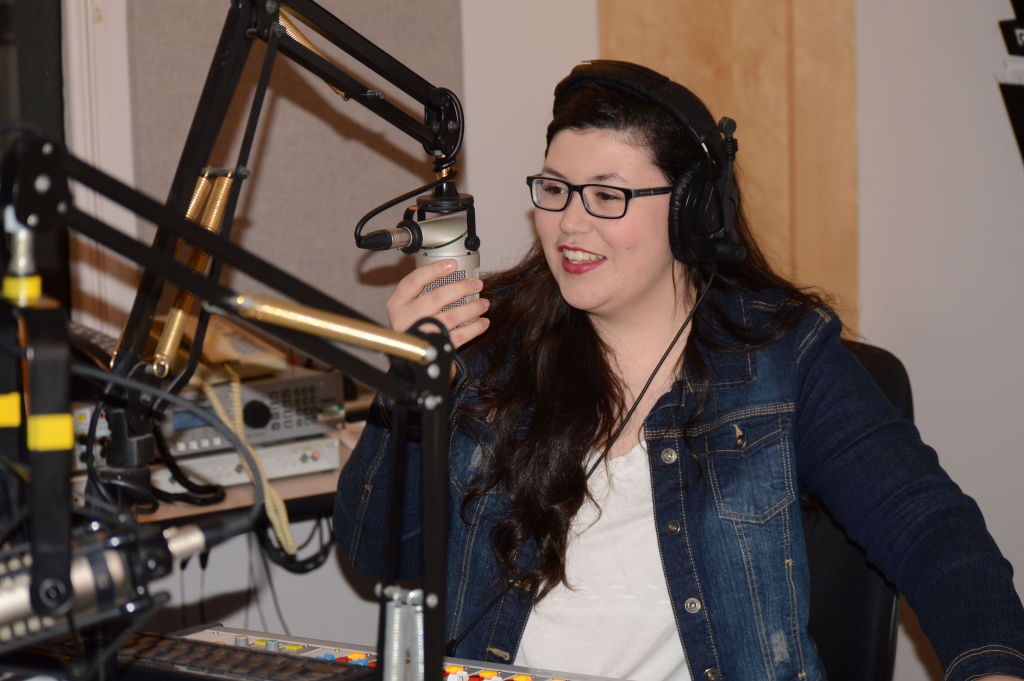
Discovering her love for colour commentary was a happy accident for second-year radio broadcasting student Bryana Liko.
According to radio broadcasting professor Dan Mellon, Liko was asked to participate in her first game on the spot.
“One commentator got sick, and (Liko) was on site,” Mellon said. “After the game, she thought, ‘this is cool’, and she became a regular.”
Liko was one of many radio broadcasting students who offered colour commentary for the college’s radio station, CKDJ, during games in the Nepean Raiders’ regular 2015-16 hockey season, which ended on March 6.
Liko landed on the front page of a local newspaper in Manotick for her participation. But working with CKDJ meant much more to her than the publicity she received.
“I got to meet several of the (Nepean Raiders), and then there was the experience,” Liko said of what she liked about giving colour commentary.
Colour commentators add conversational analyses to sports broadcasts.
Some students earned placement hours from the experience, but for many of them, it was a time-consuming hobby.
How did Liko find time to complete radio broadcasts and learn as a full-time student?
“I don’t sleep,” she joked.
Liko described the CKDJ team as “friendly”, which is not always a word associated with the experiences of female sports reporters.
Radio broadcasting professor Jessica Brando said that some reporters do receive “unwanted attention”, but she and Mellon teach their students to pursue their goals nonetheless, and their skills can take them far.
Some female reporters, like Jessica Mendoza, who became ESPN’s first female MLB post-season analyst last year, are often subject to misogynistic remarks. Mendoza has been the subject of many gender-based slurs and critiques on Twitter.
However, Liko has not experienced situations like these.
“With (CKDJ), you get respect as long as you know what you’re doing,” Liko said.
According to Mellon, former radio broadcasting graduates have gone on to work for TSN and other sports broadcasting companies. These are possibilities for Liko and the other second-year radio broadcasting students who plan to graduate this year.


